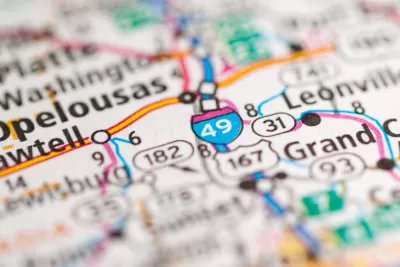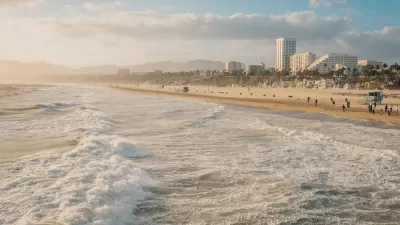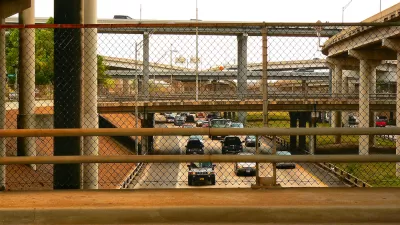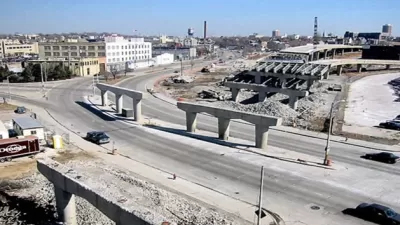An interstate project decades in the making is being investigated by federal authorities for claims that it would perpetuate historically racist land use patterns.

A federal civil rights investigation could alter the design of an interstate expansion project in Lafayette, Louisiana that has been ongoing for four decades. As Stephen Marcantel reports in The Current, if a similar case in Houston is any indication, the I-49 Connector project will likely go forward with changes and mitigation measures.
The investigation is the result of a resident complaint claiming that “the Connector’s path was laid along lines drawn in a 1923 ordinance that bisected Lafayette into white and Black communities” and would perpetuate the inequities created by the city’s historic segregation policies.
The case highlights the ongoing struggle of urban communities to gain recognition of the damage caused by freeway construction, despite federal initiatives like the Reconnecting Communities Act. However, “Some argue the Connector itself represents a way to fix a broken situation along the Thruway. Neighborhoods there have been in limbo for decades, lacking investment while the project hung in the air incomplete.” Shawn Wilson, outgoing director of the Louisiana Department of Transportation and Development and a supporter of the project, wrote in a statement, “While I understand this project will not meet the approval of everyone, and some opponents will go to great lengths to stop it, one thing we know for sure is that doing nothing is an unacceptable alternative.”
Federal officials could, like in the Houston case, require a range of changes to the plan, including “Air quality monitoring, sound barriers for neighborhoods, lighting and sidewalks for improved pedestrian safety, flood mitigation, connecting neighborhoods, improving public transit and creating green spaces.”
FULL STORY: How a civil rights investigation could alter the I-49 Connector

Study: Maui’s Plan to Convert Vacation Rentals to Long-Term Housing Could Cause Nearly $1 Billion Economic Loss
The plan would reduce visitor accommodation by 25,% resulting in 1,900 jobs lost.

Alabama: Trump Terminates Settlements for Black Communities Harmed By Raw Sewage
Trump deemed the landmark civil rights agreement “illegal DEI and environmental justice policy.”

Why Should We Subsidize Public Transportation?
Many public transit agencies face financial stress due to rising costs, declining fare revenue, and declining subsidies. Transit advocates must provide a strong business case for increasing public transit funding.

Paris Bike Boom Leads to Steep Drop in Air Pollution
The French city’s air quality has improved dramatically in the past 20 years, coinciding with a growth in cycling.

Why Housing Costs More to Build in California Than in Texas
Hard costs like labor and materials combined with ‘soft’ costs such as permitting make building in the San Francisco Bay Area almost three times as costly as in Texas cities.

San Diego County Sees a Rise in Urban Coyotes
San Diego County experiences a rise in urban coyotes, as sightings become prevalent throughout its urban neighbourhoods and surrounding areas.
Urban Design for Planners 1: Software Tools
This six-course series explores essential urban design concepts using open source software and equips planners with the tools they need to participate fully in the urban design process.
Planning for Universal Design
Learn the tools for implementing Universal Design in planning regulations.
Smith Gee Studio
Alamo Area Metropolitan Planning Organization
City of Santa Clarita
Institute for Housing and Urban Development Studies (IHS)
City of Grandview
Harvard GSD Executive Education
Toledo-Lucas County Plan Commissions
Salt Lake City
NYU Wagner Graduate School of Public Service





























